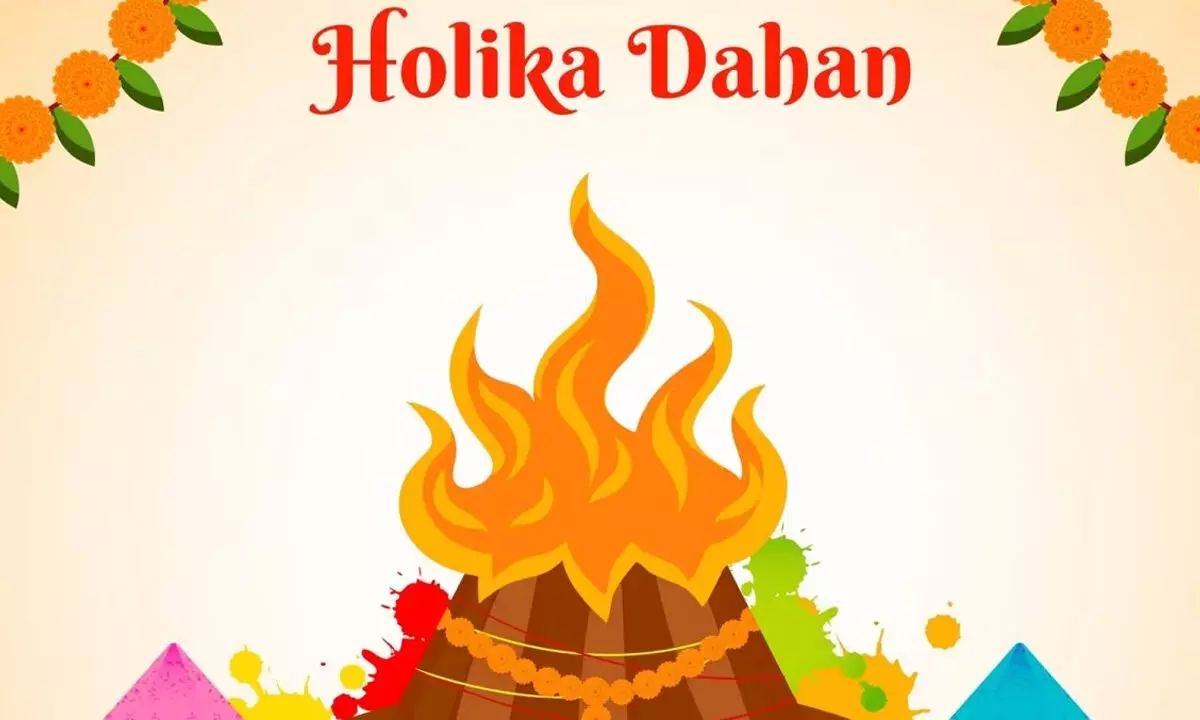Holika Dahan 2024: Date, Time And Significance

In astrology, celestial events such as solar and lunar eclipses hold significant importance, believed to influence various aspects of our lives
In astrology, celestial events such as solar and lunar eclipses hold significant importance, believed to influence various aspects of our lives. The upcoming lunar eclipse on March 25, coinciding with theHindu festival of Holi, has sparked discussions and considerations regarding the timing of traditional rituals amidst this unique astrological scenario.
The Lunar Eclipse and Holi Festival
Scheduled on the auspicious day of Purnima Tithi, the lunar eclipse on March 25 marks the first of the year. Notably, this occurrence aligns with the celebration of Holi, a vibrant Hindu festival symbolizing colors, love, and the arrival of spring. Traditionally observed on the Purnima Tithi of the month of Phagun, this year's Holi festivities intertwine with the lunar eclipse, prompting deliberations over the timing of key rituals such as Holika Dahan.
Astrological Calculations and Recommendations
Astrological calculations indicate that the lunar eclipse will position the Moon in the Virgo zodiac sign. Despite the eclipse, Holi celebrations are slated for March 25, leading to uncertainty about the timing of Holika Dahan. Pandit Kalki Ram, a renowned astrologer from Ayodhya, suggests conducting Holika Dahan on March 24, followed by Holi celebrations on the subsequent day.
Timing Considerations and Ritual Observations
The Purnima Tithi, commencing on March 24 at 8:13 am and extending until March 25 at 11:44 am, is deemed valid only on March 24 due to the Udaya Tithi. Additionally, the Bhadra period lasts until 11:17 pm on March 24, indicating the ideal timing for Holika Dahan. Pandit Kalki Ram emphasizes the significance of adhering to these timings amidst the astrological alignment of Holi and the lunar eclipse.
Sutak Period and Regional Observations
The lunar eclipse on March 25 will be visible in various countries, including the United States, Japan, Russia, Germany, Italy, and France, but not in India. Consequently, the Sutak period, associated with ritual impurity during eclipses, will not apply in India, alleviating concerns related to worship restrictions. According to astrology, the Sutak period holds relevance only when the eclipse is visible, thus providing clarity for ritual observations during Holi festivities in India.
The convergence of Holi with a lunar eclipse presents a unique astrological scenario, guiding the timing of traditional rituals such as Holika Dahan and subsequent festivities. While uncertainties arise regarding the eclipse's influence, astrological insights and regional observations offer clarity and guidance for celebratory practices amidst this celestial alignment.




